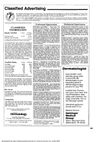 November 2017 in “JAMA internal medicine”
November 2017 in “JAMA internal medicine” Women also use 5α-reductase inhibitors, and their effects differ from men.
 July 2017 in “JAMA Dermatology”
July 2017 in “JAMA Dermatology” The document corrects a missing conflict of interest and acknowledges a pioneer in hair transplantation and his other contributions.
[object Object]  September 2016 in “JAMA Dermatology”
September 2016 in “JAMA Dermatology” Melanoma patients can learn to check their skin, early balding in men may indicate similar risks as PCOS in women, certain criteria can help predict skin cancer behavior, small skin cancer may not need extra therapy after surgery, and sterile gloves don't reduce infection in minor surgeries.
 April 2016 in “JAMA Dermatology”
April 2016 in “JAMA Dermatology” Baseball caps don't fully protect bald spots on the back of the head from sun damage; wear wide-brimmed hats or use sunscreen.
 April 2016 in “JAMA Dermatology”
April 2016 in “JAMA Dermatology” Acne is not a key diagnostic feature for PCOS, postadolescent men with acne may have insulin resistance, melanoma patients often have few moles, tumor size in CSCC indicates higher risk of serious outcomes, and hidradenitis suppurativa is linked to higher risk of heart problems and death.
 December 2015 in “JAMA Dermatology”
December 2015 in “JAMA Dermatology” Dermatologists can help diagnose endocrine disorders like PCOS and metabolic syndrome by looking at skin symptoms.
 May 2014 in “JAMA Dermatology”
May 2014 in “JAMA Dermatology” Mother and son diagnosed with a rare genetic hair loss condition with no effective treatment.
September 2011 in “Archives of dermatology” The child was diagnosed with cutaneous leishmaniasis.
 March 2006 in “Archives of Dermatology”
March 2006 in “Archives of Dermatology” Topical steroids help Erosive Lichen Planus, finasteride with birth control aids Female Pattern Hair Loss, young age helps Occupational Hand Eczema prognosis, quitting smoking is key for Diffuse Dermal Angiomatosis, and a 3-site Botulinum Toxin A injection is effective for glabellar wrinkles.
 December 2002 in “Archives of Dermatology”
December 2002 in “Archives of Dermatology” The poem ends by asking for case reports on serious health issues like Telogen Effluvium.

Abortion access should be defended on public health grounds, and medical evaluations are crucial in psychiatric cases to avoid misdiagnosis.

Both books are valuable resources in their fields.

The document reviewed various health-related books, focusing on abortion debates, medical conditions, and effective health communication.
[object Object] 
The book details advanced techniques in cosmetic dermatology for experienced surgeons.
 November 1997 in “Archives of Dermatology”
November 1997 in “Archives of Dermatology” The book provides basic insights into hair transplant surgery but is not detailed enough to be a complete guide for surgeons.
 June 1995 in “Archives of Dermatology”
June 1995 in “Archives of Dermatology” A woman's hair loss was due to trichotillomania, which is often misdiagnosed and can require different treatments based on age and underlying conditions.

Eating less calories, focusing on complex carbs, and reducing fats can help manage type II diabetes.

The book is a detailed guide on hair growth issues and treatments, recommended for specialists and hospital libraries.

World War II led to major advancements in American military medicine.
 February 1994 in “Archives of Dermatology”
February 1994 in “Archives of Dermatology” Telogen effluvium is a condition that causes temporary hair loss.
 February 1994 in “Archives of Dermatology”
February 1994 in “Archives of Dermatology” Both parties agree that cell death is important in the hair cycle, but they have different views on the role of the catagen phase and hair shedding.
 March 1991 in “Archives of Dermatology”
March 1991 in “Archives of Dermatology” Classified ads in the Archives of Dermatology offer job listings and opportunities for dermatologists.
 February 1991 in “Archives of Dermatology”
February 1991 in “Archives of Dermatology” The document lists dermatology job ads across the U.S. with good pay and benefits.

The document listed various medical job opportunities with competitive benefits and living conditions.

The document listed medical job ads and guidelines for breast cancer screening.

Eye drops with β-blockers may cause hair loss.

Amphetamine use may not cause hair loss, "geezer" traits are normal aging, not all educated older people are stereotypes, and metronidazole can rarely cause lung disease.

Amphetamines may not directly cause hair loss.

The dermatology book is useful but has some organizational issues.
May 1979 in “Archives of Dermatology” Alopecia can be linked to autoimmune issues, vitiligo, nail problems, and sometimes cancer treatments.




























